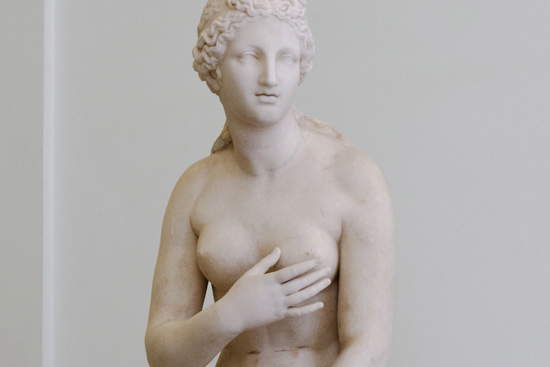Covered statues: here's what we should really be ashamed of
Hassan Rouhani is an intelligent man and an able politician. And he is an educated man: he even studied in Europe. It is hard to think that the statues in the Capitoline Museums, covered up not yet known by whose initiative, could have offended his sensibilities. It is therefore necessary to find another key to interpret what happened in the hours just past. On February 26, elections will be held in Iran for the renewal of the Parliament: Rouhani, representative of the moderate wing that, as we all know, intends to open up to theWest, is now in a minority position compared to the conservative wing. But Rouhani is considered by all Western leaders to be a valuable partner in the context of the Middle East chessboard: to have him pass by statues that could (in this case, yes) have hurt the susceptibility of conservatives, would have played to his disadvantage vis-Ã -vis much ofIranian public opinion and could have cost him dearly in the run-up to the elections. What is certain is that it was not really an act of submission, as some of our own pundits accustomed to gossip, who have probably never set foot in a museum (but remember the existence of such institutions exclusively when they have to make propaganda), would have us believe.
For his part, Rouhani merely commented, laconically dismissing the affair as a journalistic fluke and thanking the Italians for their hospitality. Thus, the Iranian delegation would not make any demands on Italy. But also to avoid any fall in the Iranian president’s popularity in his country, it would have been safe to act otherwise: thinking, for example, of other places for the guest to visit. To keep Iran’s internal (and thus international) balances stable, there was no need to exert such an unseemly action against our culture. Of course: the culture of a nation can also be inferred from the regards that are held towards a guest, and from the strategic choices made in order not to alter, as mentioned, certain balances. But sometimes one sins from overzealousness: this is certainly a case in which the host’s attentions were excessive.
 |
| Detail of the Capitoline Venus, one of the covered statues. Credit |
The most irritating aspect of the whole affair, however, is another, and it is all Italian: the nefarious practice of passing the buck that we are witnessing in these hours. We still cannot find the person responsible who made the decision to have the statues covered. The Minister of Cultural Heritage, Dario Franceschini, has pulled out of it, and the Capitoline Superintendency has done the same, putting the responsibility on Palazzo Chigi, although Dario Franceschini himself said that Premier Matteo Renzi had also not been informed. The internal investigation launched by Palazzo Chigi has established that the responsibility lies with the head of ceremonial, Ilva Sapora: however, it is difficult, as Corriere della Sera points out, to think that the official took the decision in total autonomy, given also the strongly centralizing tendencies imposed by Matteo Renzi, whose meetings with foreign leaders are precisely taken care of by the ceremonial office. Could it be that the ceremonial office concealed from the prime minister the idea of making a decision that would have involved endless controversy? And that he therefore underestimated the possible media echo of such a decision? Most likely the answers to such questions can only be negative.
Equally impossible to think that no one on the staff of the Superintendency and the Capitoline Museums knew that the statues would be covered: in order to carry out an operation like the one we all saw, it is necessary to hire a specialized firm, to find the right material for the covering, to bring it inside the museums, and to proceed with the installation, all at the expense of taxpayers. So someone is needed to coordinate all these activities. Statues, after all, cannot cover themselves, and workers cannot make decisions independently. So it is obvious that the director of the Museums and the Capitoline Superintendency also have responsibilities, since they make decisions about their collections and could therefore have opposed them.
In short, it is obvious that responsibilities cannot be attributed to a single person. It is therefore unacceptable that Ilva Sapora runs the risk of becoming thesole scapegoat in the affair. We therefore hope that the entirecourse of the affair can be reconstructed to truly understand who was involved in the decision. Finally, it is unacceptable that in a civilized country institutional figures continue to shirk responsibility: it is this depressing blame-shifting that really makes us look bad internationally, and that is what we should really be ashamed of.
Warning: the translation into English of the original Italian article was created using automatic tools. We undertake to review all articles, but we do not guarantee the total absence of inaccuracies in the translation due to the program. You can find the original by clicking on the ITA button. If you find any mistake,please contact us.




























